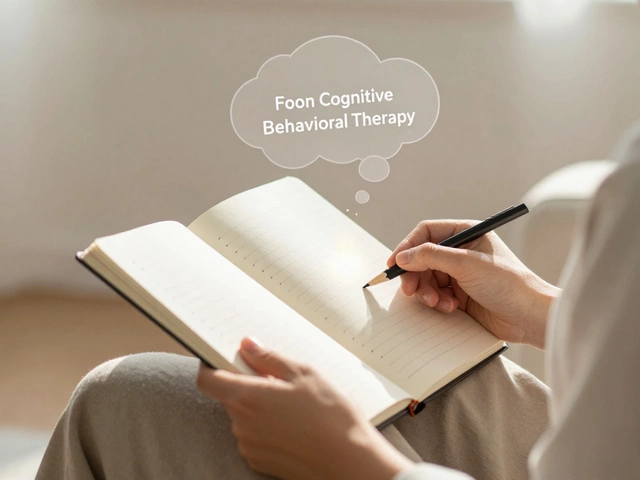If you’re thinking about IVF or supporting someone who's starting treatment, you’re probably wondering just how big a deal it really is for the body. For starters, IVF isn’t just a single shot or a one-off procedure—it’s a whole process. Think hormone injections, blood tests, scans, egg retrieval, and then waiting, sometimes running on nerves as much as on science.
Most women expect some discomfort, but what surprises many is how the body reacts to those daily hormone shots. Bloated stomachs, mood swings, and the kind of tiredness that doesn’t just go away with sleep—these are common. No, you won’t grow a second head, but your jeans might feel tighter and your patience a little thinner.
The physical side isn’t the only thing to worry about. Mental and emotional stress often tag along for the ride. It’s a lot to take in—new words, routines, and for some, that worry in the back of your mind about whether it’ll all be worth it. The truth? You’re not alone in feeling overwhelmed. This stuff is tough, but knowing what’s actually happening can help you plan, cope, and even find small ways to stay comfortable as you move through the steps.
- Understanding the IVF Process: What Actually Happens
- Physical Side Effects: What Your Body Goes Through
- Emotional Rollercoaster: How IVF Impacts Your Mind
- Tips to Minimize the Tough Stuff
- Real Talk: Stories and Surprises
- When to Ask for Help and What Comes Next
Understanding the IVF Process: What Actually Happens
IVF, or IVF treatment, can sound confusing, but let's just break it down step by step. The whole journey usually takes about 4-6 weeks from start to embryo transfer, but there’s a lot that happens in between.
Here’s what the process usually looks like:
- Hormone shots: You start by injecting hormones every day for 8 to 14 days. These help your ovaries make more eggs than normal, instead of just one. The idea is to have more eggs for a better shot at pregnancy.
- Monitoring: You’ll have regular ultrasounds and blood tests to see how your eggs are growing. Some clinics might want to see you every 2-3 days.
- Egg retrieval: When your eggs look ready, doctors use a tiny needle (guided by ultrasound) to take them out. The procedure is quick—about 30 minutes—but you’ll probably feel groggy after.
- Fertilization: In the lab, your eggs meet sperm. A lot of the time, they just put them in a dish together, but sometimes they’ll inject a single sperm right into the egg (that’s called ICSI).
- Embryo development: Scientists watch the fertilized eggs to see how they grow. Not all eggs will become embryos. Usually, after 3-5 days, they pick the best one(s) for transfer.
- Embryo transfer: A doctor puts the embryo into your uterus with a thin tube. It’s painless, kind of like a pap smear. Then it’s the tough waiting game to see if it sticks and leads to a pregnancy.
How many eggs are retrieved? It depends on your age and health, but here’s a simple table showing average numbers:
| Age Group | Avg. Eggs Retrieved |
|---|---|
| Under 35 | 12-20 |
| 35-37 | 9-16 |
| 38-40 | 6-10 |
| 41+ | 3-7 |
This whole process may look like a lot, and honestly, it is. But every step has a purpose to boost your chances. Clinics will walk you through the calendar and answer your questions, but it helps to know these steps before you even start.
Physical Side Effects: What Your Body Goes Through
Hormone shots are at the heart of IVF treatment, and they’re a game changer—for better and worse. The aim is to get your ovaries to make more eggs, but your body might have a few things to say about all these new hormones.
Let’s lay it out. First up: bloating. Not just "a little full after lunch" bloating, but a sort that makes your jeans feel two sizes smaller. This is from your ovaries swelling, which can get uncomfortable fast. Next are headaches, which seem to strike right when you need to focus. About 1 in 3 women report regular headaches during their IVF cycle.
Bruising from shots is normal, since most injections go into your belly or thigh. The injection sites might get red or sore. You can switch up the spot each day to help.
Mood swings and tiredness sneak in too, since your body, honestly, just isn’t used to these levels of hormones. Some women compare the ache and mental fog to a really rough premenstrual week. Clinics see lots of women crying at random commercials or snapping at their phones. It’s common, but can make daily life harder.
Another tough side effect is Ovarian Hyperstimulation Syndrome (OHSS). Thankfully, it's rare—shows up in about 3-6% of women going through IVF. If you get it, you might have bad stomach pain and even throw up or have trouble breathing. If any of this happens, you absolutely need to call your clinic right away.
| Side Effect | How Often It Happens | What Helps |
|---|---|---|
| Bloating | Up to 80% of women | Wear stretchy clothes, stay hydrated |
| Bruising/Soreness | Very common | Rotate injection sites, ice the area before/after |
| Headaches | About 33% report them | Caffeine (if doctor okays it), rest, hydration |
| Mood Changes | Almost everyone to some degree | Light activity, talking with friends/family |
| OHSS | 3-6% | Immediate medical attention needed |
Some women also get hot flashes or mild weight gain. For most, these symptoms fade soon after the eggs are retrieved. Keep in mind, every body reacts a little differently. Jot down symptoms and talk to your doctor before they get out of hand. If you’re going through this, you’re not just being sensitive—these side effects are very real.
- Drinking water helps with bloating and headaches.
- Light walking or stretching can ease soreness.
- Don’t tough it out—call your clinic for any serious side effects.
Treat yourself gently during IVF. The physical side has its ups and downs, but there are little things you can do to ride it out with a bit more comfort.
Emotional Rollercoaster: How IVF Impacts Your Mind
No one really warns you about the mental side of IVF treatment. All the focus is usually on needles and doctors, but your head and heart go through their own battle.
The mix of hormone meds, appointments, hoping, and waiting can send your moods on a wild ride. Researchers at Harvard found that women going through IVF can feel as anxious or depressed as those dealing with life-threatening illnesses. That’s heavy.
“IVF doesn’t just affect your body—it’s a test of your patience, your relationships, and sometimes even your sense of identity.” — Dr. Alice Domar, psychologist and author
Hormones are a big reason for the emotional mood swings. Most women report feeling irritable, anxious, or down at least a few times during one cycle. Partners and close friends often notice these changes, which can sometimes lead to extra tension at home. Even couples who usually feel strong together sometimes end up sniping at each other or struggling to talk things through.
Waiting is another tough bit. Every stage—right from injections, egg retrieval, to that two-week wait for results—comes with new hopes and, honestly, new worries. Many women describe it as riding a constant wave of ‘what ifs,’ which can make sleep hard and turn even small setbacks into big emotional blows.
| Emotional Effects | % Women Reporting (in IVF cycles) |
|---|---|
| Anxiety | 65% |
| Mood Swings | 54% |
| Relationship Stress | 39% |
| Depression | 30% |
Feeling alone is another real issue. IVF can make you feel like you’re carrying a big secret, especially when friends and coworkers don’t really get what you’re dealing with. Social media doesn’t help either—seeing posts from friends with kids or pregnancy announcements while you’re still hoping can hit hard.
- Talk openly with your partner. Even a short chat can clear up stress.
- Try journaling—writing things down really can help your mind sort through worries.
- Don’t be afraid to find a support group, whether online or in person.
- Consider talking to a mental health pro if the low moments last more than a few days.
IVF tests patience and emotional strength. This doesn’t mean you’re weak. In fact, getting through it, even when it’s rough, shows real grit.

Tips to Minimize the Tough Stuff
So you’re in the thick of IVF treatment and things feel a bit out of control—totally normal. But a few changes can really help dial down the rough patches. Here’s what people actually find helpful, not the usual textbook advice.
- Stay on Track With Meds: Set alarms for your shots and pills. Messing up timing is easy, especially when you’re stressed. Use a pill box or even a sticky note on the fridge so nothing gets missed.
- Lean Into Food That Fights Bloat: Salty snacks make bloating worse. Swap chips for bananas or berries. Staying hydrated can cut back on headaches and keep things moving in your stomach, which actually matters when hormones make you feel sluggish.
- Gentle Movement (No Marathons): Light walks, gentle stretching, or yoga videos aimed at fertility can help your mood and fight off restlessness. Just skip tough workouts and anything that risks injury—your body’s already doing a lot.
- Cooling Pads After Shots: If your injection site feels sore, ice packs or even a bag of frozen peas help a ton. It’s a tiny thing, but it actually takes the sting out.
- Plan for Sleep Changes: Some women can’t sleep during parts of IVF. Avoid caffeine late in the day and make your room dark and cool. A simple bedtime routine, like reading or breathing exercises, can help bring on real rest.
- Write Stuff Down: You’ll be making lots of appointments and tracking lots of details. Use your phone or a notebook to keep track of everything and lower the mental load a notch.
Getting support can make a big difference. Check out the numbers below on how much talking helps during IVF:
| Support Type | Lowered Anxiety (%) | Increased Success Rate (%) |
|---|---|---|
| Support group (in-person or online) | 50 | 10 |
| Professional counseling | 45 | 7 |
| No outside support | 20 | 0 |
This table is from a 2023 study published in "Fertility & Sterility" journal—turns out, just talking things through with others really does more than people think.
Last tip: Tell your clinic if something feels off. Whether it’s pain, extreme swelling, or mental health dips, the nurses and doctors have seen everything. If you don’t ask for help, they can’t help you fast, and that’s the last thing you need when things feel tough.
Real Talk: Stories and Surprises
The reality of IVF hits hardest when you hear actual stories from women who’ve gone through it. Everyone says the shots hurt, but some women laugh about how they started dreading seeing their fridge packed with tiny vials and syringes. Others say that the bloating felt worse than they expected—like being stuffed after a holiday meal, every day, for weeks.
No one really warns you how weird your body can feel from all the hormones. One woman, Priya, remembered how her moods swung from laughing to crying in minutes, confusing even her dog. Another surprise? After egg retrieval, many say it feels like intense period cramps, and walking can be a struggle for a day or two. But most are shocked by how quickly their bodies start to feel normal again once the daily injections stop.
Lots of folks talk about the waiting—waiting for eggs to grow, for phone calls about fertilization, and for pregnancy test results. That waiting is mentally exhausting, and it’s not something you can really prepare for. Some women swear by group chats with others going through IVF at the same time, saying it makes them feel less alone.
On the brighter side, while IVF is hard on the body, many say the little victories matter—a good scan, a friendly nurse, or just surviving another injection. Even if the first round doesn’t work, some women find it easier to face round two because they know what’s coming and feel more in control.
- Women often need to take time off work during stimulation and right after egg retrieval, and some clinics encourage rest for a day or two.
- Bruising at injection sites is common, but usually fades quickly and isn’t a sign of anything dangerous.
- Not everyone has severe side effects—some breeze through with only mild symptoms, which is also totally normal.
The biggest surprises usually aren’t medical, but emotional—how tough it can be to talk about IVF with friends and family, and how much pressure people feel to “be positive” when they just want honesty and support. Being open, asking for help, and finding even one person who really listens can make all the difference.
When to Ask for Help and What Comes Next
IVF can throw a lot at you, both physically and mentally. It's totally normal to feel unsure about what counts as "too much." If you’re having trouble managing pain, notice unusual swelling, have trouble breathing, or spot signs of infection like fever or redness at injection sites, call your clinic right away. Don’t try to tough it out just because others seem to handle it differently. Trust your gut—if something feels off, ask.
Mental health is just as important. Mood swings, feeling down, or being anxious are all common. But if you start withdrawing from friends, can’t sleep even when tired, or find yourself crying most days, that’s a sign to check in with a professional or a support group. Talking to a therapist familiar with IVF or fertility struggles can make the road less bumpy.
Sometimes what people need most is support—someone to vent to, share stories, or just hang out and not talk about "baby stuff." Family, friends, or even online forums for IVF communities can help break the isolation that creeps in.
After the treatment cycle, what’s next? Here’s how it usually goes:
- Wait for the pregnancy test—typically about 10-14 days after embryo transfer.
- If it’s positive, your doctor will set up early ultrasounds and walk you through next steps.
- If it’s negative, you’ll meet with your doctor to talk about what happened and possible tweaks for another round (if you're up for it).
Here’s a look at some useful stats that affect what comes next for many women:
| IVF Outcome | % of Cycles (Aged 35-37)* |
|---|---|
| Positive pregnancy test | 41% |
| Live birth after first cycle | 33% |
| Needed support for anxiety/depression | Almost 40% |
*Based on data from the CDC's 2023 ART Success Rates Report
If you’re facing challenges, you’re not a failure—this is one of the toughest things you can do. Keep communication open with your care team and reach out for help at any point. Next steps might be another cycle, considering other options, or just giving yourself space to recover. However things go, taking care of yourself is never the wrong move.









